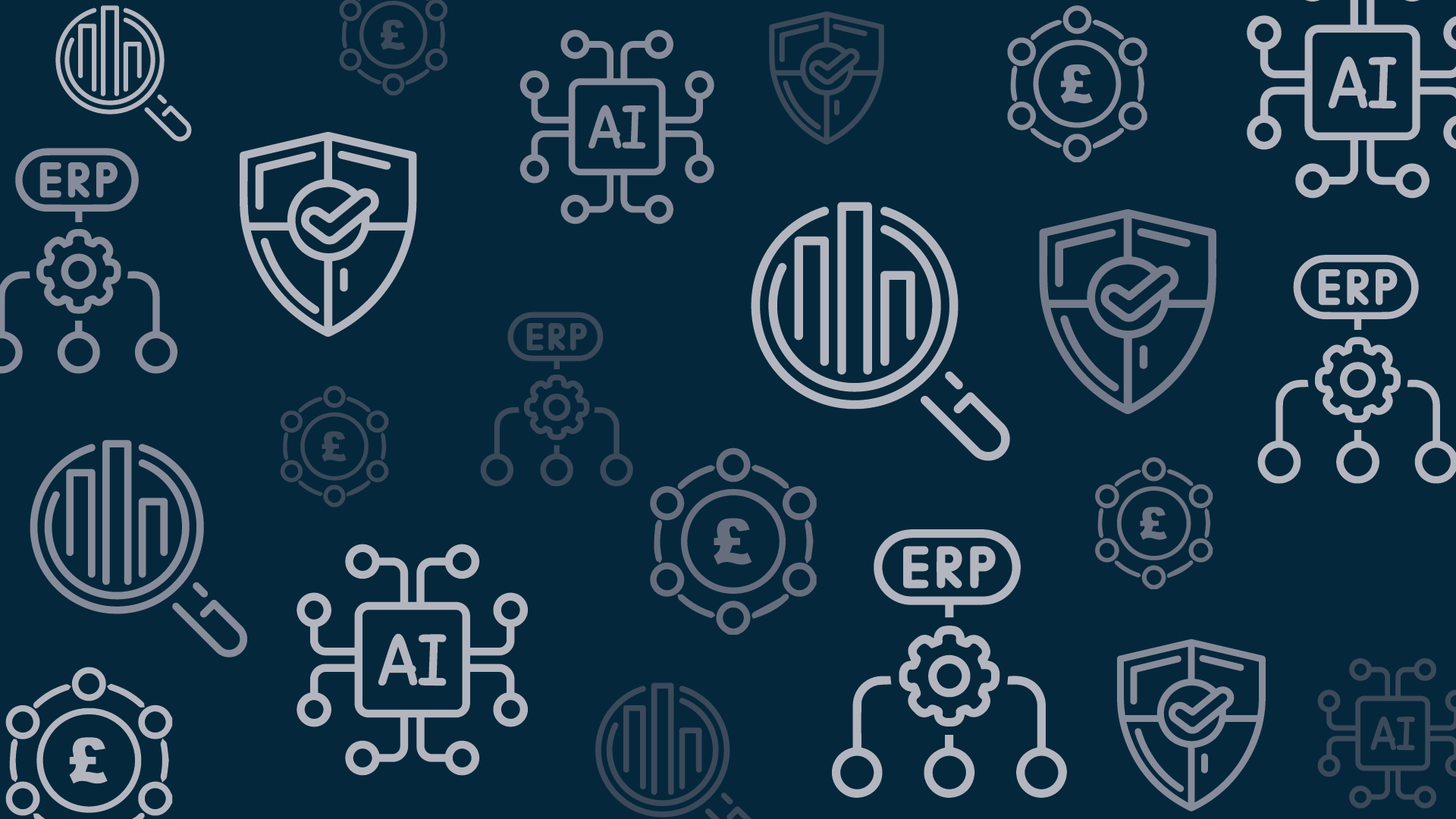The finance and accounting landscape is undergoing significant transformation, driven by advancements in technology, shifting regulatory demands, and the need for real-time decision-making. By 2025, several key trends are expected to shape the future of finance and accounting, empowering businesses to become more efficient, agile, and data-driven. Here’s a look at the top finance and accounting trends we can expect to see in 2025:
AI, Machine Learning & Automation
Artificial intelligence (AI), Machine Learning (ML) and automation are already revolutionising finance and accounting operations and will continue to do so through 2025. From automated accounting processes, to AI-powered financial analysis and real-time auditing, these tools will significantly reduce manual work, enhance accuracy and provide advanced data analysis capabilities.
By automating routine tasks such as bookkeeping, finance teams can focus on strategic tasks while reducing errors. AI will enable more advanced financial forecasting, trend analysis and anomaly detection, driving more informed decision-making. More effective internal controls will enable real-time auditing, reducing risks of errors or fraud through the use of AI.
Rise of Cloud-Based Accounting Solutions
Cloud-based accounting systems offer flexibility, scalability, and access to real-time financial data from anywhere. In 2025, we will see the adoption of more cloud-based solutions with the aim of cost efficiency and an increase in collaboration and accessibility all through an integrated ecosystem that will streamline business operations and data flows.
Cloud solutions will reduce the need for heavy IT infrastructure investments offering subscription-based models while cloud platforms will allow access to the same data for all teams in real time improving decision-making. These systems will integrate with all business tools, offering a unified system that streamlines operations.
Data-Driven Decision Making
As big data and analytics continue to evolve, finance professionals are set to rely increasingly on data-driven insights to inform strategic decision-making. Advanced analytics and business intelligence tools will empower finance teams to identify trends, optimise budgets, and assess performance across multiple dimensions.
This shift moves finance from reactive reporting to proactive, forward-looking insights—predicting financial outcomes and recommending actions to enhance performance. Interpreting complex financial data will also become simpler with interactive dashboards and visual reports, which are quickly becoming the standard
Digital Finance Transformation
Technology is redefining the finance function, driving it toward a fully digital, integrated role within the business. Comprehensive ERP platforms will manage every aspect of finance—from budgeting and forecasting to procurement and accounts payable—providing real-time financial visibility across the organisation. Robotic Process Automation (RPA) will streamline repetitive tasks like payroll, account reconciliation, and tax filing, boosting efficiency and minimising errors. Meanwhile, blockchain technology will enhance security, transparency, and traceability in financial transactions, especially in areas such as auditing, payments, and contract management.
Enhanced Focus on ESG and Sustainability Reporting
As environmental, social, and governance (ESG) factors become a top business priority, finance teams will take on a central role in tracking, reporting, and managing sustainability metrics.
Businesses will adopt ESG accounting practices to monitor their environmental impact, resource usage, and social responsibility, aligning with emerging global standards. Finance teams will integrate ESG metrics into financial reporting, embedding sustainability into core performance assessments. The growth of sustainable finance—including green bonds and eco-friendly investments—will also drive the need for new tools and expertise within finance departments
Greater Emphasis on Cybersecurity and Data Privacy
As digital finance continues to evolve, so do the cybersecurity risks associated with it. By 2025, finance teams will be at the forefront of safeguarding sensitive financial data. Finance and IT departments will collaborate closely to implement advanced security protocols that protect financial information from breaches and cyber-attacks. Compliance with global data privacy regulations, such as GDPR and CCPA, will become a top priority, with finance teams ensuring secure and compliant data practices. AI-driven risk management tools will further support finance teams in anticipating potential threats, enabling proactive mitigation strategies and bolstering data security
Human Skills and Strategic Finance Leadership
As automation and AI handle more operational tasks, finance leaders will shift their focus to strategic roles that demand human judgement, leadership, and creative problem-solving. To stay relevant and drive innovation, finance professionals will need to upskill in data analytics, AI, and digital tools. The CFO role will transform from traditional financial oversight to that of a strategic advisor, actively shaping business decisions, guiding corporate strategy, and fostering innovation. As organisations become increasingly mindful of their societal impact, finance leaders will play a key role in embedding ethical considerations and responsible investments into financial strategies.
Regulatory Changes and Compliance
Finance teams will face growing regulatory pressures, especially in areas like data privacy, tax compliance, and ESG disclosures. AI-powered systems will support continuous monitoring of evolving regulations, reducing the risk of non-compliance. As businesses expand globally, finance teams will need to navigate complex tax landscapes, making real-time tax reporting increasingly essential. Compliance with standards like IFRS will be streamlined through automation, enhancing accuracy and minimising manual effort
Remote Work and Virtual Finance Departments
The rise of remote work and distributed teams is transforming finance and accounting operations, driving a shift toward virtual, cloud-based workflows. As remote work becomes the norm, cloud accounting systems will empower finance teams to access and manage financial data anytime, anywhere.
Small and medium-sized businesses will increasingly turn to virtual CFOs, gaining access to strategic financial expertise without needing a full-time in-house hire. Virtual collaboration tools, integrated with accounting platforms, will further streamline communication across finance teams, ensuring seamless workflows and timely decision-making
Conclusion
The finance and accounting landscape of 2025 will be defined by automation, AI-driven insights, sustainability efforts, and an increasingly digital and secure approach to managing finances. Finance leaders who embrace these trends will not only drive efficiency but also position their organisations for long-term growth, innovation, and resilience in a rapidly changing world.
Looking for market insights? Get in touch today


